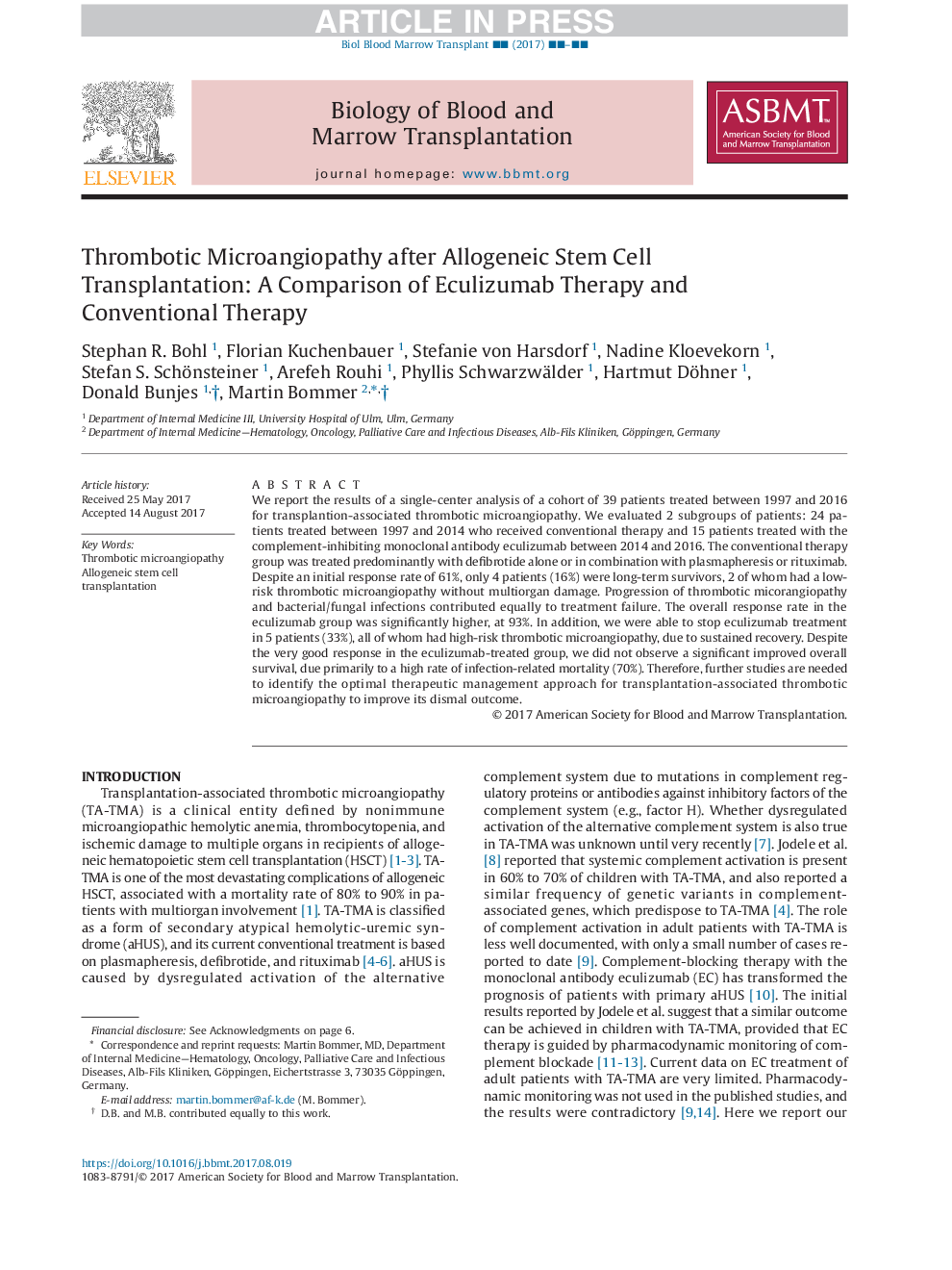| Article ID | Journal | Published Year | Pages | File Type |
|---|---|---|---|---|
| 8430764 | Biology of Blood and Marrow Transplantation | 2017 | 6 Pages |
Abstract
We report the results of a single-center analysis of a cohort of 39 patients treated between 1997 and 2016 for transplantion-associated thrombotic microangiopathy. We evaluated 2 subgroups of patients: 24 patients treated between 1997 and 2014 who received conventional therapy and 15 patients treated with the complement-inhibiting monoclonal antibody eculizumab between 2014 and 2016. The conventional therapy group was treated predominantly with defibrotide alone or in combination with plasmapheresis or rituximab. Despite an initial response rate of 61%, only 4 patients (16%) were long-term survivors, 2 of whom had a low-risk thrombotic microangiopathy without multiorgan damage. Progression of thrombotic micorangiopathy and bacterial/fungal infections contributed equally to treatment failure. The overall response rate in the eculizumab group was significantly higher, at 93%. In addition, we were able to stop eculizumab treatment in 5 patients (33%), all of whom had high-risk thrombotic microangiopathy, due to sustained recovery. Despite the very good response in the eculizumab-treated group, we did not observe a significant improved overall survival, due primarily to a high rate of infection-related mortality (70%). Therefore, further studies are needed to identify the optimal therapeutic management approach for transplantation-associated thrombotic microangiopathy to improve its dismal outcome.
Related Topics
Life Sciences
Biochemistry, Genetics and Molecular Biology
Cancer Research
Authors
Stephan R. Bohl, Florian Kuchenbauer, Stefanie von Harsdorf, Nadine Kloevekorn, Stefan S. Schönsteiner, Arefeh Rouhi, Phyllis Schwarzwälder, Hartmut Döhner, Donald Bunjes, Martin Bommer,
